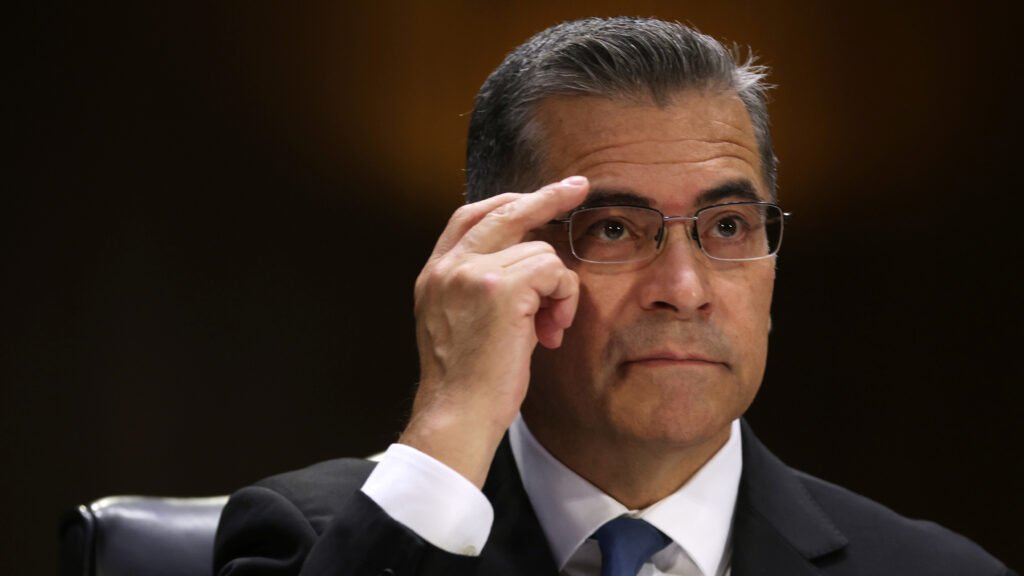The recent flurry of appointments to the Advisory Committee on Immunization Practices (ACIP) by President Biden’s health secretary has raised concerns about the future of vaccination policy in the United States. With eight new members approved, including replacements for expiring terms, the move was seen as an effort to safeguard the scientific integrity of the panel from potential interference by the incoming Trump administration.
The ACIP, established in 1964, is a key player in shaping vaccination policy by reviewing safety and efficacy data for new vaccines and making recommendations for their use. These recommendations are crucial for insurance coverage and public health efforts. The committee also monitors the safety of existing vaccines and assesses potential risks to recipients.
One of the most recent decisions by the ACIP was related to the RSV vaccines, where concerns were raised about the risk of Guillain-Barré syndrome in older adults. This highlights the committee’s role in balancing the benefits and risks of vaccines for different populations.
However, with the possibility of Robert F. Kennedy Jr. becoming the new HHS secretary and Dave Weldon as CDC director, there are fears of potential interference with the ACIP’s work. Speculations include canceling meetings, refusing to seat approved members, dismissing current members, overriding recommendations, or even dissolving the committee altogether.
Experts in public health and vaccine law have voiced concerns about the future direction of the ACIP under the Trump administration. They believe that the new leadership may seek to reshape the committee to align with their views on vaccines, potentially undermining the scientific basis of the committee’s decisions.
While the recent appointments by the Biden administration aimed to fortify the ACIP with members who support evidence-based vaccine policy, the future of the committee remains uncertain. The power to reconfigure the ACIP lies with the new administration, which could significantly impact vaccination policy in the United States. Eleven of the current roster of 15 members joined the Advisory Committee on Immunization Practices (ACIP) last year, bringing a new wave of expertise and perspectives to the committee. Three additional new members are expected to join soon, with more slated to begin their terms in July. This influx of new members will expand the ACIP’s roster from 15 to 19 members, in line with the committee’s renewed charter which recognized the need for more capacity to handle its workload.
The upcoming February meeting of the ACIP, where key votes on various vaccines are scheduled, may face postponement due to recent cancellations of other HHS advisory committee meetings. The fate of the new members waiting to join remains uncertain, with many experts speculating that they may not have the opportunity to serve during this administration.
There is speculation about potential changes to the ACIP’s composition and operations under the new Health and Human Services (HHS) secretary, Kennedy. He has expressed a desire to eliminate conflicts of interest among committee members and reshape the evaluation process for vaccines. However, the strict conflict of interest rules already in place for ACIP members ensure transparency and accountability in their decision-making processes.
Kennedy’s plans to potentially overhaul the ACIP raise questions about the future direction of the committee and its recommendations. While some suggest removing the committee altogether, others argue that doing so could hinder progress in vaccine policy and recommendations. Ultimately, the ACIP plays a crucial role in shaping vaccine policy and public health decisions, and any changes to its structure must be carefully considered to ensure the continued integrity of its work. In order to revoke existing recommendations, there needs to be a compliant committee willing to roll back these suggestions. Without the support of this committee, it would be nearly impossible to cancel these recommendations. As Schwartz pointed out, the committee could be instrumental in translating the feedback received into tangible changes to the proposals. This approach ensures that the recommendations are not simply erased but rather revised and improved upon. The composition of the committee and the direction it takes in the coming years remain uncertain, leaving room for potential changes and advancements in vaccine recommendations.
The current vaccine recommendations cover a wide range of vaccines, from childhood immunizations like the chickenpox vaccine to the HPV vaccine for adolescents and annual flu shots for individuals over six months old. While some suggestions strongly advocate for vaccination, others adopt a more cautious approach, advising individuals to consider vaccination after consulting with a healthcare professional. This form of recommendation, known as shared clinical decision-making, allows for a collaborative discussion between the patient and the healthcare provider before making a decision on vaccination.
One contentious example highlighted by Reiss is the HPV vaccine, which safeguards against sexually transmitted viruses linked to various cancers. Despite its effectiveness in reducing cervical cancer rates, the vaccine has faced criticism from anti-vaccine groups, leading to growing concerns about its safety. In light of this, Kennedy may push for a shift from a definitive recommendation to shared clinical decision-making for the HPV vaccine. While this approach may seem flexible, it could potentially decrease vaccine uptake by signaling that vaccination is optional rather than recommended.
Critics of shared clinical decision-making argue that it places a burden on healthcare professionals who may lack the time or expertise to engage in lengthy discussions with patients. Additionally, pharmacists, who play an increasing role in vaccine administration, may not be adequately equipped to facilitate these conversations. The implementation of shared clinical decision-making could hinder the accessibility and uptake of vaccines, ultimately impacting public health outcomes.
In conclusion, the debate over vaccine recommendations and the potential shift towards shared clinical decision-making underscores the complex dynamics at play in public health policymaking. While revising recommendations may offer flexibility and individualized care, it is crucial to consider the broader implications on vaccination rates and disease prevention. The future direction of vaccine recommendations remains uncertain, highlighting the need for a thoughtful and collaborative approach to ensure optimal public health outcomes.


